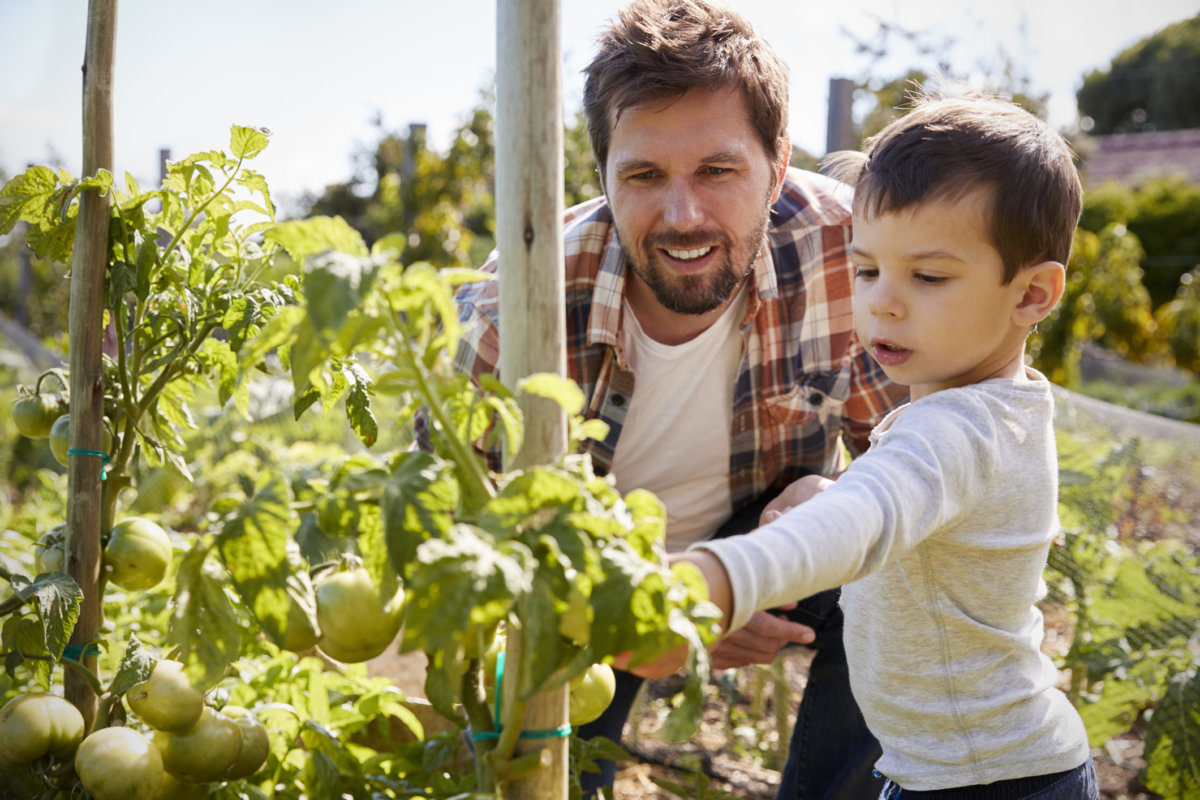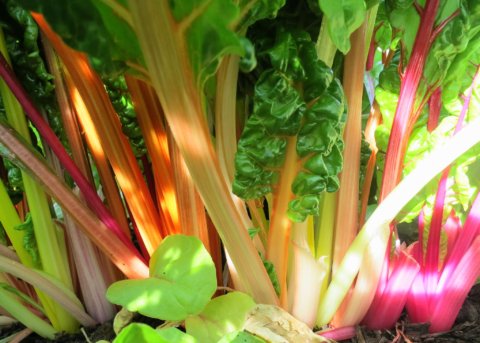Are you thinking about growing your own food? Home-grown vegetables and fruits are more delicious than the food you can buy at the store. And you are helping the environment by growing vegetables because your food is not shipped from distant lands.
Growing a food garden is also a wonderful activity to do with your children. They have the fun of getting dirty—with your permission! And they learn where their food comes from and how delicious vegetables can be. Swansons Nursery has tips on vegetable gardening with kids.
If you are worried about pesticides in your food, growing it yourself is a great way to ensure that you are eating organic produce. You and your family will be healthier.
Sustainable vegetable gardening classes
In Harmony co-owner Ladd Smith is presenting several classes this spring on sustainable vegetable gardening. We promise you will be entertained and will take away useful information to help you garden successfully. Here is the current schedule.
February 20, 7:00-8:30 pm
Tukwila Community Center, 12424 42nd Ave S, Tukwila
Register on the Cascade Water Alliance website.
February 29, 10:00-11:30 am
Squak Mountain Nursery, 7600 Renton – Issaquah Road SE, Issaquah
Register on the Cascade Water Alliance website.
March 5, 6:30 – 8:00 pm
North City Water District, 1519 NE 177th St, Shoreline
To register, call (206) 362-8100 or email theresah@northcitywater.org.
April 4, 10:00 – 11:30 am
Woodinville Water District, 17238 NE Woodinville-Duvall Road, Building A, Woodinville
To register, call (425) 487-4100 or email customerservice@woodinvillewater.com.
April 7, 6:30 – 8:00 pm
Northshore Utility District, 6830 EN 185th St., Kenmore
To register, call (425) 398-4417 or email conservation@nud.net
Growing vegetables for your landscape and food bank
You can grow vegetables in their own plot, in raised beds or in containers. You can also incorporate vegetables into your ornamental landscape.
Some vegetables are beautiful. Imagine bright leaves of rainbow Swiss chard or other greens tucked into your landscape beds. Fruiting plants, such as apple trees or blueberry bushes, add structure and color to the landscape.
Food pantries
You might consider growing food for your local food bank or food pantry as well. People in need often get canned and boxed food. They appreciate fresh, healthy homegrown food.
Ample Harvest.org is a nonprofit that makes it easy for gardeners to donate food to local food pantries. You can use their search function to find food pantries near you.
Tips for growing vegetables in the Pacific Northwest
Our cool, wet climate can make growing vegetables challenging. You can be successful, even with heat-lovers like tomatoes, peppers, eggplant, squash and beans, if you give them the right conditions.
Choose the right varieties. For example, cherry tomatoes are much more successful in our climate than large beefsteak tomatoes. If we have a cool summer, larger tomatoes may not have time to ripen. Similarly, smaller Asian varieties of eggplant will ripen more quickly than larger varieties.
Plant your vegetables in full sun, in an area that gets six to 10 hours of sun every day. This means planting on the west or south side of your house.
Feed your vegetables with compost and organic fertilizers. Prepare the soil before you plant, and feed them occasionally during the growing season. Find information on fertilizing vegetable gardens from Garden Guides and Morning Chores.
Provide consistent water. A drip irrigation system or soaker hose is a great way to go. Mulch, such as compost, will help keep soil moist. Young plants are especially vulnerable to drying out.
Give your plants plenty of space so they have room to grow. This also reduces potential problems with diseases such as powdery mildew and late blight.
Don’t plant warm-season crops too early. You can reliably plant some crops, such as salad greens and broccoli, in early spring. But heat-lovers should not be planted outside until the weather starts to warm up in May and June.
Ask your local nursery about ways to extend the season, such row covers that help warm the air and soil. Swansons Nursery has tips on growing warm-season vegetables
Questions?
Attend one of Ladd’s sustainable veggie gardening classes (see above).
Call the Garden Hotline at 206-633-0224 (Monday-Saturday, 9-5) for practical, safe and natural solutions to garden problems. You can also email the hotline anytime. The service is free to home gardeners and landscape professionals throughout Seattle and King County.
Tilth Alliance offers classes on vegetable gardening, urban livestock, permaculture, canning and pickling, and more.
Get basic information on vegetable gardening:
- Growing Vegetables West of the Cascades, by Steve Solomon. This book, now in its 35th anniversary edition, is considered “the bible of organic vegetable gardening in the Pacific Northwest.”
- Home Vegetable Gardening in Washington, WSU Extension.
- Growing vegetables in the Pacific Northwest coastal region, OSU Extension Service.
- 5 Essential Tips for Vegetable Gardening in the Pacific Northwest, Parent Map.
- Vegetable Gardening for Beginners from The Old Farmer’s Almanac.


